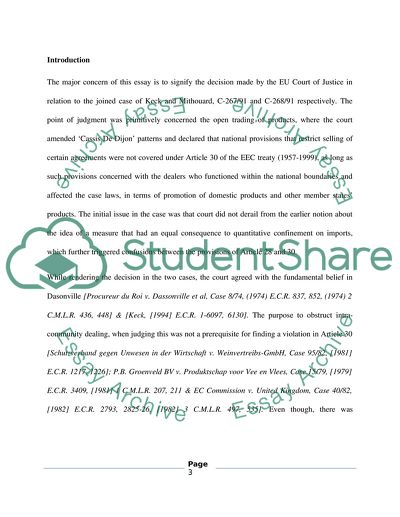Cite this document
(“EU LAW KECK DECIDED Essay Example | Topics and Well Written Essays - 2000 words”, n.d.)
EU LAW KECK DECIDED Essay Example | Topics and Well Written Essays - 2000 words. Retrieved from https://studentshare.org/law/1672347-eu-law-keck-decided
EU LAW KECK DECIDED Essay Example | Topics and Well Written Essays - 2000 words. Retrieved from https://studentshare.org/law/1672347-eu-law-keck-decided
(EU LAW KECK DECIDED Essay Example | Topics and Well Written Essays - 2000 Words)
EU LAW KECK DECIDED Essay Example | Topics and Well Written Essays - 2000 Words. https://studentshare.org/law/1672347-eu-law-keck-decided.
EU LAW KECK DECIDED Essay Example | Topics and Well Written Essays - 2000 Words. https://studentshare.org/law/1672347-eu-law-keck-decided.
“EU LAW KECK DECIDED Essay Example | Topics and Well Written Essays - 2000 Words”, n.d. https://studentshare.org/law/1672347-eu-law-keck-decided.


